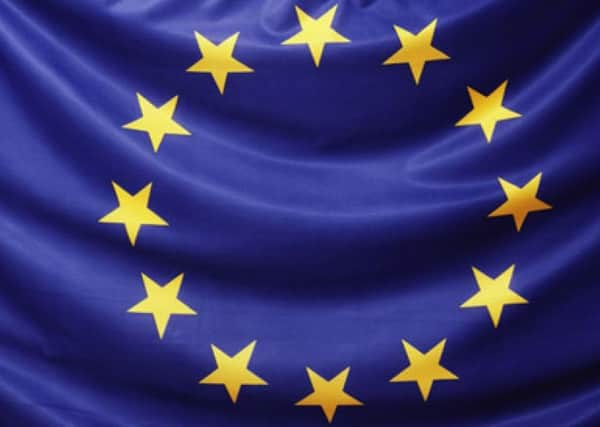It is foolish to imply that Irish identity in NI depends on EU


No piece of paper could tell people whether they were British or Irish or both, and the prerogative of people born here to take citizenship of the Republic of Ireland existed long before 1998, but the agreement reassured voters that their professed identities would be recognised and respected, under new power-sharing arrangements.
Northern Ireland is now in the midst of another emotional debate about sovereignty, as UK voters decide whether to stay in the European Union or opt for ‘Brexit’.
Advertisement
Hide AdAdvertisement
Hide AdAlongside practical arguments about the economy and the Irish border, some campaigners have tried to suggest that the principles which underpin the Belfast Agreement could be undermined by a vote for ‘Leave’.
The foolish implication is that Irish identity in Northern Ireland is dependent upon membership of the EU.
That is a dangerous idea, which underestimates the extent to which relations between the UK and the Republic of Ireland are on a solid legal footing and overestimates the reach of the Agreement.
All the practical rights of citizenship, residency and freedom of movement, exercised by Irish people in the United Kingdom and vice-versa, are enshrined in British and Irish law, most of it predating Good Friday 1998, not to mention Britain’s accession to the European Union.
Advertisement
Hide AdAdvertisement
Hide AdAnyone born in Northern Ireland will still be entitled to citizenship of the Irish Republic and, by extension, citizenship of the European Union, whatever the result of the referendum.
Likewise, the Republic is not regarded in British law as a foreign country and, if its citizens are resident in the UK, they have the same rights to live, work and vote as British citizens.
Some arguments are ongoing about how the Irish border might operate, in the event of Brexit, but there’s no serious suggestion that free movement across the British Isles would be restricted.
As for identity, the Brexit debate has shown that it is an elusive concept in comparison to sovereignty.
Advertisement
Hide AdAdvertisement
Hide AdThe Belfast Agreement determined that Northern Ireland’s constitutional future should be decided by a majority of voters here, but it also switched the central focus of politics to more abstract questions around culture and identity.
The arguments over the referendum don’t impact materially on power-sharing or other totems of the ‘peace process’, but they do threaten to expose the Agreement’s most successful conjuring trick.
Campaigners on either side of the referendum debate are using emotive arguments to support their points of view.
However, come the 24th of June, we’ll all still have to share the same region and confront the same issues, whatever the final result.
Advertisement
Hide AdAdvertisement
Hide AdIt’s irresponsible and inaccurate to suggest that either the peace process or the Good Friday Agreement in Northern Ireland is under discussion.
Whether the United Kingdom decides to remain in the European Union, or to leave, no-one’s identity is under threat and no-one will be any less British or Irish, after the votes are counted.
• Owen Polley is a freelance writer and policy consultant. This article was written for his blog Three Thousand Versts of Loneliness